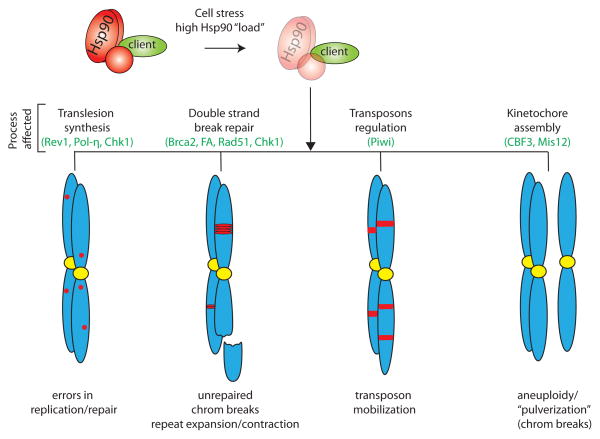Figure 4.
Elevated Hsp90 ‘load’ can lead to genomic instability through diverse mechanisms. Under high cell stress, the ability of Hsp90 to chaperone its entire range of clients is compromised. This may inhibit pathways involved in trans-lesion synthesis (TLS), double-strand break repair, transposable element regulation and kinetochore assembly. Defects in these processes can contribute to increases in DNA replication errors, unrepaired chromosome breaks as well as the expansion/contraction of repetitive sequence elements, transposon mobilization, and aneuploidy.

